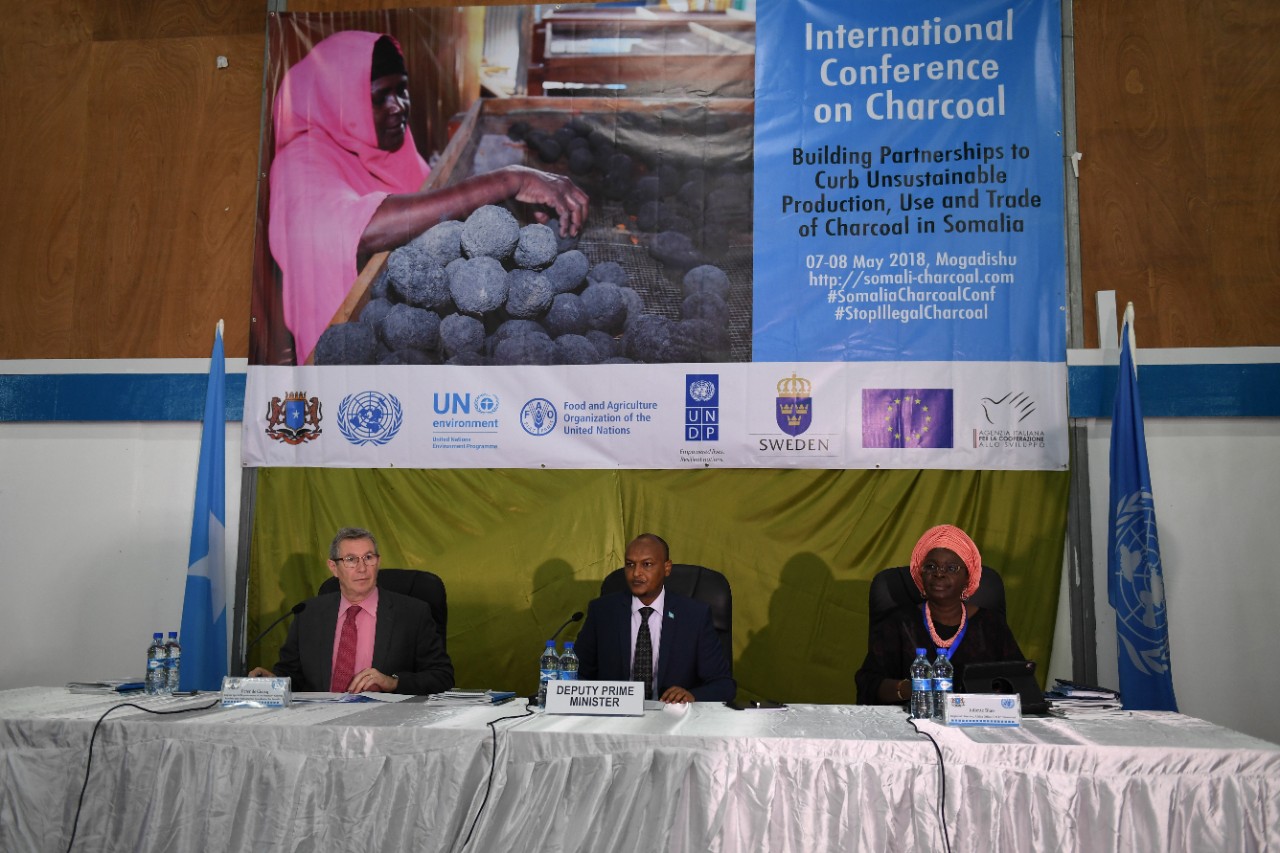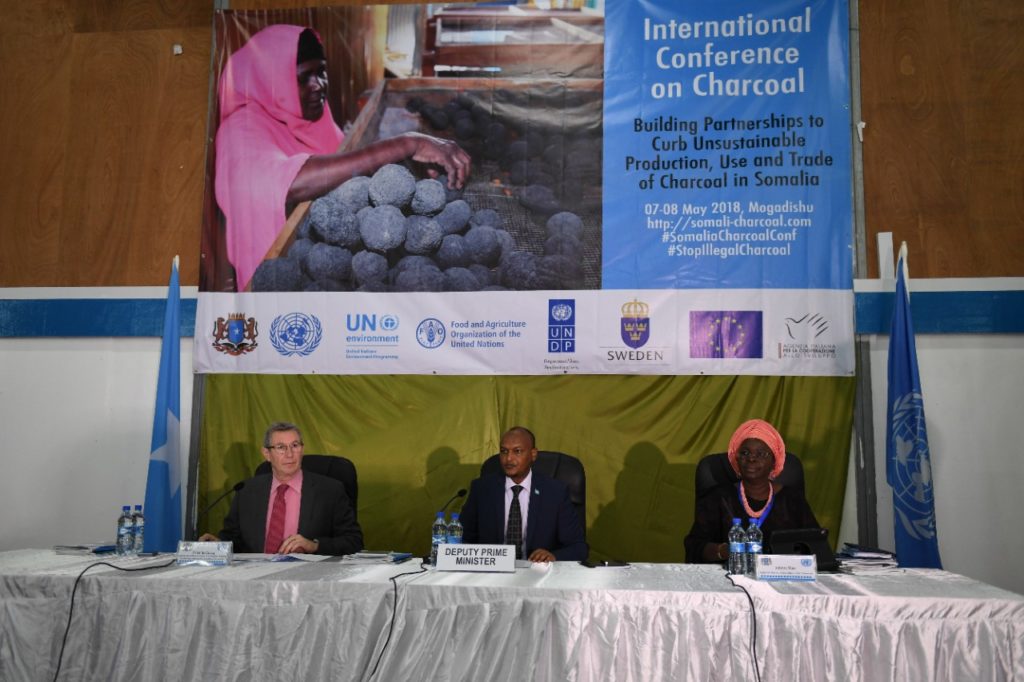Somalia appeals for international cooperation to halt charcoal trade

Both Somalia and the UN Security Council banned charcoal trade in 2012 but enforcement has largely not materialised

By Yussuf Osman
Somalia has called for international support to curb export of charcoal from the Horn of Africa country as the UN warned charcoal trade in Somalia was exposing the country to adverse weather effects and aiding terrorism.
Speaking at the opening of a two day conference on charcoal supported by the UN, Deputy Prime Minister Mahdi Guled said international cooperation and among African states and Gulf countries was necessary to stem the tide of charcoal trade that has decimated swathes of forests in southern Somalia.
“We need a holistic response to address the issues of charcoal in Somalia,” Guled told the conference. “Both the demand and supply side have to be tackled – to do this we need cooperation to implement the UN Security Council Resolution and ensure the environmental, economic and human losses that happen because of illegal charcoal trade are curbed.”
Guled called for urgent international for urgent action and support from the international community and countries that are importing charcoal.
RELATED: Blended financing key to achieving sustainable energy investment in Somalia-UN expert
Public-Private partnership key to sustainable energy in Somalia- Forum
The call to halt charcoal trade in Somalia comes at a time the country is experiences back to back impacts of climate change. As the country gradually emerges from several months of drought which uprooted one million people from their homes according to the UN, another half a million are already affected by floods which are forcing people to move from their homes and destroying livelihoods.
A study by the African Development Bank in 2015 notes that Somalia’s dependence on biomass fuel-wood and charcoal remains the highest in the world with between 80-90% of households meeting energy needs through charcoal and wood.
8.2 MILLION TREES
The Food and Agriculture Organisation estimates 8.2 million trees were felled in Somalia between 2001 and 2017 for charcoal translating to one tree for every 30 seconds in the seven year period. This has led to increasing land degradation, food insecurity and vulnerability to flooding and drought. Over 80 percent of charcoal produced in Somalia is exported to Gulf States and neighbouring countries.
Illegal trade in charcoal is recognised as a key contributor to insecurity in Somalia, providing a major source of funding for militias, terrorist groups, and other actors linked to conflict, who illegally tax exports.
The UN Security Council and Somalia banned charcoal export in 2012 but the enforcement of the ban has not largely materialized.
Deputy Special Representative of the Secretary-General for Somalia, Peter de Clercq warned the nexus between charcoal trade, conflict and environmental degradation was clear.
“The environmental destruction brought on by the charcoal trade contributes to drought, flooding, the loss of livelihoods and increase in food insecurity. Together with conflict, this exacerbates the humanitarian situation in Somalia,” de Clercq. “But due to high levels of poverty in Somalia and lack of opportunities, many are forced to turn to unsustainable and illegal livelihoods, such as charcoal production. The people of this country deserve better”.
The conference will conclude tomorrow.